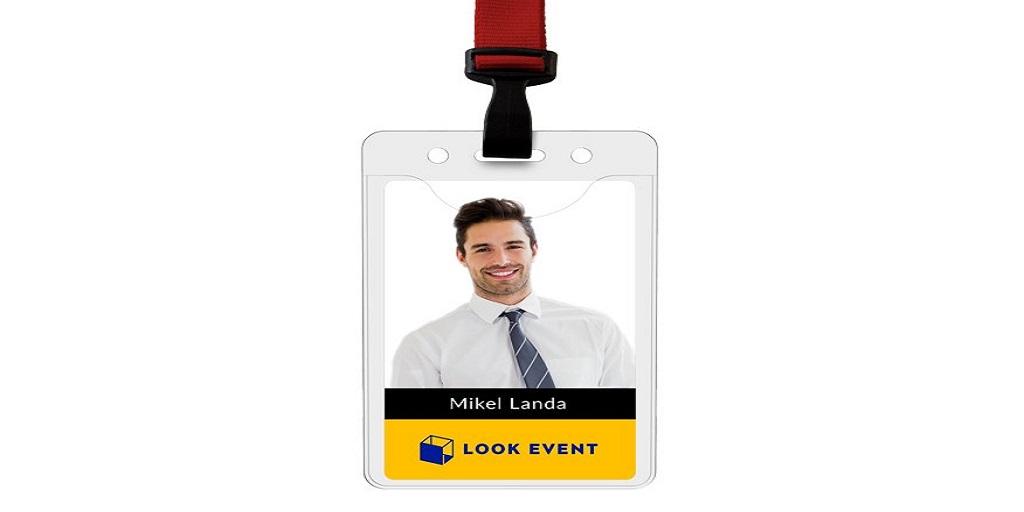The humble ID card, once a simple piece of laminated paper, has evolved into a sophisticated tool for security, identification, and branding. Selecting the right materials for ID cards is crucial to ensure durability, security features, and a professional appearance.
But what are the options that are now available for companies and businesses to use in their ID cards? Let’s look at the available materials used for modern ID cards and what combines with plastic name badge holders, and consider both practical and aesthetic considerations.
Polyvinyl Chloride: The Classic Choice
Polyvinyl Chloride (PVC) is the most common material used for modern ID cards. Aside from its accessibility and availability, it has several other advantages that make it a popular choice, such as it fits easily with plastic name badge holders.
Advantages
● Durability
PVC cards are known for their durability, making them ideal for everyday use.
● Cost-Effective
PVC is a cost-effective material, making it a popular choice for mass production of ID cards.
● Customization
It allows for easy customization, including the addition of security features and branding elements.
Security Features
● Holographic Overlays
PVC cards can incorporate holographic overlays to enhance security and deter counterfeiting.
● Microprinting
Small, intricate text that is difficult to reproduce with standard printing methods.
Composite Cards: Enhanced Durability
These cards are made using PVC and PET plastic materials. PET or Polyethylene terephthalate is a recyclable, light, but strong plastic material. It makes composite ID cards more durable and earth-friendly.
Advantages
● Increased Strength
Composite cards are made from a combination of materials, providing enhanced durability.
● Resistance to Wear
They withstand wear and tear better than standard PVC cards, making them suitable for extended use.
Security Features
● Embedded Technologies
Composite cards can accommodate embedded technologies like RFID chips for added security.
Polycarbonate: Advanced Security and Durability
Polycarbonate is a material that is strong and resistant to heat. PC, as it is called, is often used for ID cards that require strong security measures, such as passports and security IDs. They are very durable and promise long-term reliability.
Advantages
● Advanced Security Features
Polycarbonate allows for the integration of advanced security features, such as laser engraving and multi-layered designs.
● Longevity
These cards have an extended lifespan due to their robust construction.
Security Features
● Laser Engraving
Intricate laser-engraved details that are nearly impossible to replicate.
● Transparent Windows
Polycarbonate cards can have transparent windows with intricate designs, adding an extra layer of security.
Biodegradable and Eco-Friendly Options
ID cards also use biodegradable and eco-friendly materials, such as bamboo and recyclable plastics. These materials break down easily and can be recycled and turned into new ID cards.
Advantages
● Environmental Sustainability
Biodegradable materials contribute to environmentally friendly practices.
● Brand Image
Choosing eco-friendly materials aligns with corporate social responsibility, enhancing the brand’s image.
Security Features
● Custom Watermarks
Biodegradable materials can incorporate custom watermarks to enhance security.
Choosing the Right Material for Your Needs
Selecting the appropriate ID material is pivotal for a business. Beyond mere identification, these materials convey a brand’s commitment to sustainability, durability, and professionalism.
PVC ensures cost-effectiveness and resilience, while composite cards amalgamate various features. Opting for biodegradable materials aligns with eco-conscious values, portraying corporate responsibility. Polycarbonates offer robust security features.
The chosen material influences not just aesthetics but also impacts the card’s longevity, security, and environmental footprint. Making an informed choice reflects a company’s dedication to functionality, environmental consciousness, and a positive brand image, contributing to enhanced credibility and stakeholder trust.
Balancing Durability and Security
Selecting the ideal material for ID cards involves a delicate balance between durability, security, and environmental considerations. PVC remains a classic choice for its versatility and cost-effectiveness, while advanced options like polycarbonate offer heightened security features.
As technology and research find new materials that are sustainable and cost-effective for businesses, the materials used for ID cards will also expand and provide even more options for organizations to tailor their identification solutions to their unique needs.
For more information about Customized Name Badges and Custom Id Badge Please visit: Imprint Plus.



